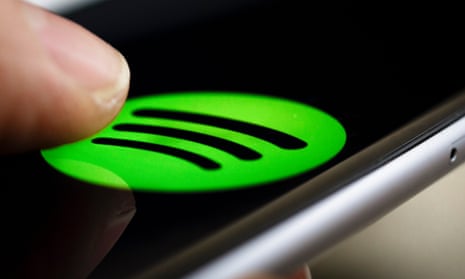Spotify is experimenting with a voice-control interface, looking to free itself from reliance on Siri and Alexa and pave the way for the company’s forthcoming smart speaker.
Users of the service have spotted the new feature hiding in the search bar of Spotify’s iOS app. After tapping the magnifying glass to search for a track or playlist , testers see a microphone icon inside a white bubble, according to the Verge.
After users tap on the icon, Spotify suggests a number of typical requests for a voice-controlled music system: “Show Calvin Harris”, “Play my Discover Weekly” and “Play some upbeat pop”, for instance.
The move comes as Spotify ramps up its efforts to build a smart speaker to challenge Apple, Amazon and Google in the hardware field, all of which have their own music services. A trio of job adverts posted in February confirmed the company’s intentions, with Spotify elaborating on its goals to build a “category defining” product “akin to Pebble Watch, Amazon Echo and Snap Spectacles”.
Research and development on the new product has progressed to the stage that Spotify is already working on setting up the supply chain, hiring operations managers and project managers to oversee the business. That, alongside the new public test of its voice recognition technology, suggests that the company may be ready to begin production imminently.
Voice recognition technology is becoming a critical strategic fight for Spotify as the company moves towards its direct listing on the New York Stock Exchange. The company has good partnerships across the tech industry with its Spotify Connect feature, which lets users access its library on products such as the Amazon Echo, Sonos speakers and a number of cars.
But with an increasing amount of usage driven by voice, which is seen by many as the next stage in the evolution of computing after PCs and smartphones, the platform is relegated to being a second-tier player on the systems it doesn’t control. The release of Apple’s HomePod, which only allows voice commands to control the company’s own Apple Music service, has underscored that divide further.
According to industry news site The Information, Spotify has almost double the global subscribers of Apple Music, its next largest competitor: 71 million to 38 million. But the company’s operating loss is almost €400m a year, on €4.1bn in revenue. Spotify’s gross margin – the difference between the income it makes from users and the royalty payments it pays to record labels – is just 20%, significantly lower than other successful streaming businesses such as Pandora or Netflix.
